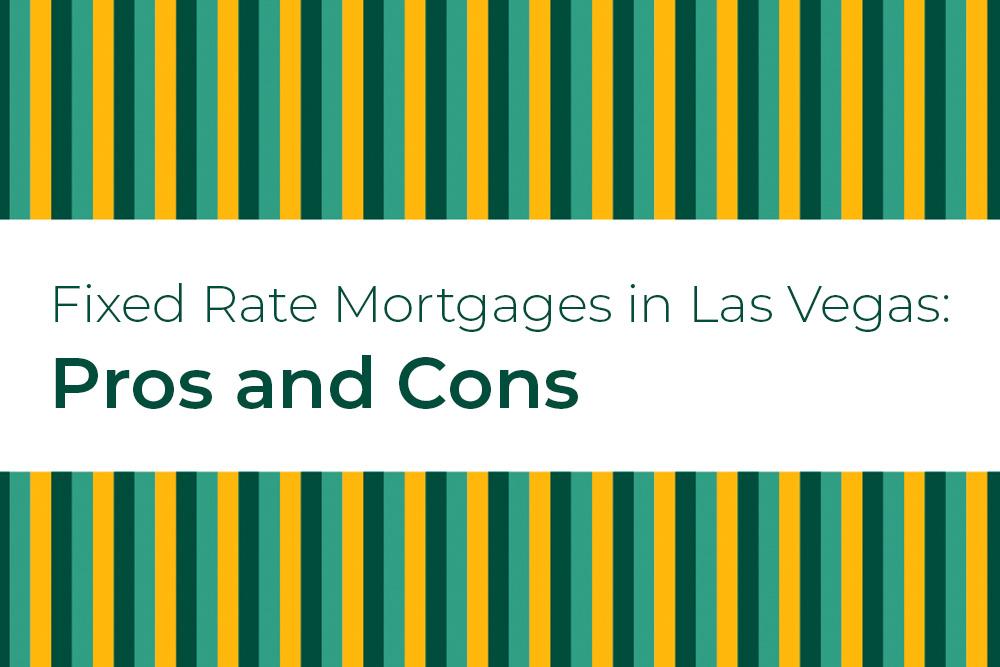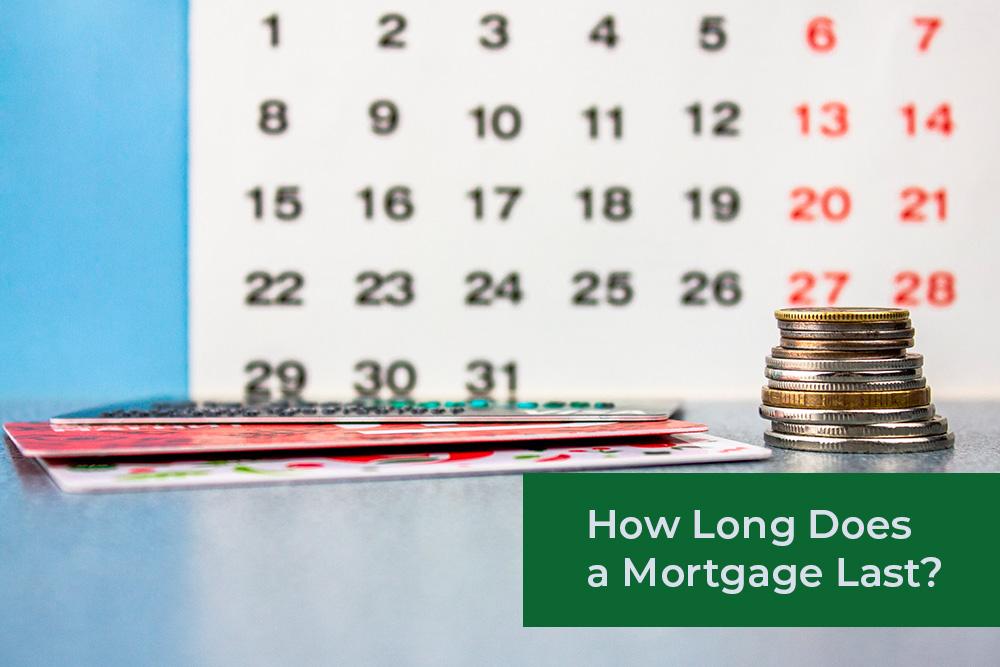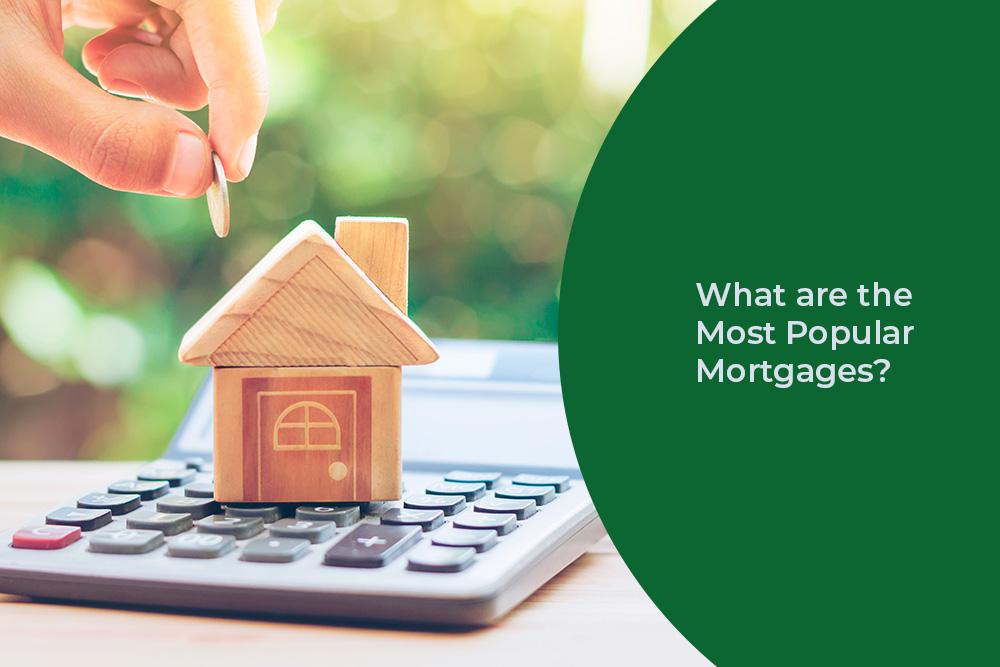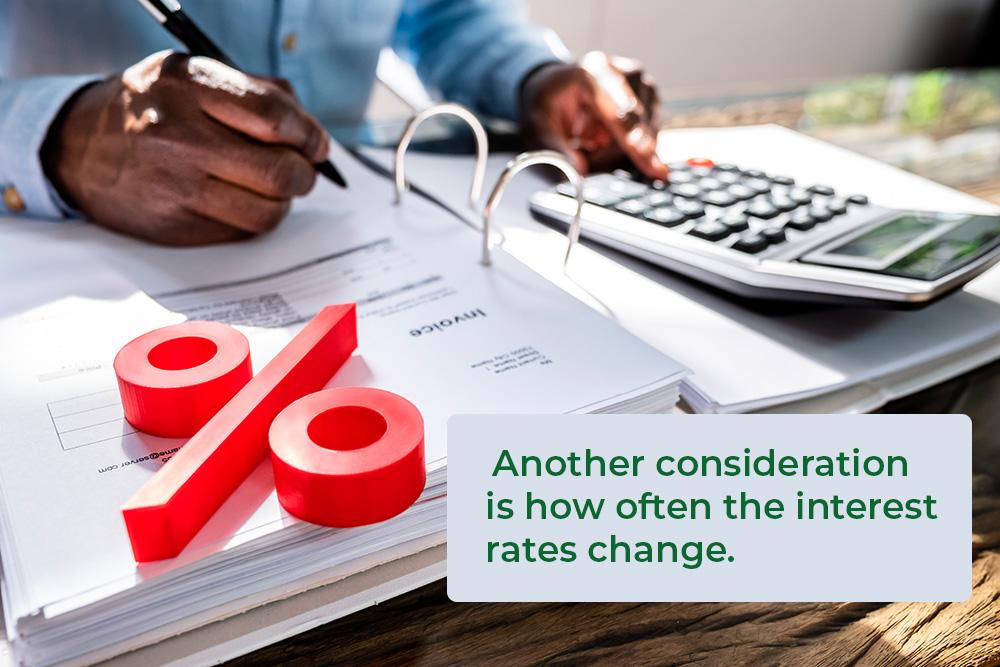Fixed Rate Mortgages in Las Vegas: Pros and Cons

If you’re looking for a new mortgage, there are two main kinds that you can get. One is a fixed-rate mortgage, and the other is an adjustable-rate mortgage or an ARM. A fixed-rate mortgage is a popular option for many homeowners, including first-time homeowners who want the stability and predictability of an interest rate that doesn’t change. A loan officer can explain if you’re wondering what kind of mortgage in Las Vegas to get.
Understanding a Fixed-Rate Mortgage
In order to decide what kind of mortgage in Las Vegas to get, you’ll want to know the basics of a fixed-rate mortgage and how it can help you as a homeowner. The term “fixed-rate” refers to the interest rate in this kind of mortgage. The interest rate structure is a key difference between a fixed-rate mortgage and an ARM. The interest rate can fluctuate if you have an ARM, but it stays the same with a fixed-rate mortgage. The principal rate also stays the same if you have a fixed-rate mortgage.
Along with an interest rate that doesn’t change, there are some other identifying characteristics of a fixed-rate mortgage. Every month, you will pay off some of the interest in addition to chipping away at the principal. Although you will pay more on interest for the first part of the loan’s duration, you will eventually end up spending more money paying off the principal.
How Long Does a Mortgage Last?

A fairway mortgage in Las Vegas is available in various lengths. The most common mortgage duration is 15-30 years. However, you can always work with a mortgage lender to find the loan with a duration that you are most comfortable with if you want one outside of the standard loan duration. A loan officer can work with you to create custom home loans in Las Vegas that are suitable for your particular needs. Of all the loan options, one of the most popular is a 30-year mortgage with a fixed interest rate.
Advantages of a Fixed-Rate Mortgage
A fixed-rate mortgage is beneficial for various reasons, including:
- Low-interest rates and monthly payments
- Possibility of a larger home
- No refinancing
- Saves money
- A cheaper option for buying a home
Fixed-rate mortgages have numerous advantages. One is that they have a steady interest rate, which may ultimately be lower than the interest rate you would pay for a variable-rate loan. Since interest rates are generally low at first, lenders may also be more inclined to back a mortgage for someone who wants to buy a larger house than they might otherwise be able to afford.
What are the Most Popular Mortgages?

The most popular fixed-rate mortgage is a 5/1, which has a five-year fixed mortgage. A 15-year fixed-rate loan has the same interest rate for 15 years. A 30-year loan is considered the most affordable, with monthly payments lower than a 15-year mortgage.
Do Fixed-Rate Mortgages Have Disadvantages?
A fixed-rate mortgage has many advantages but also some possible drawbacks. Although the interest rate can change with a fixed-rate mortgage, the interest rate can start higher than the interest rate with an ARM. Keep in mind that the interest rate may fall after the initial rate period with an ARM, but it can also increase and leave you with higher interest payments until the rate period ends. Another bonus of a fixed-rate mortgage is that it typically requires a lower down payment than an ARM. An ARM comes with a typical down payment requirement of at least five percent, but with a fixed-rate loan, you can put down three percent if you’re getting a conventional loan. If you have less savings in your bank account, you may want to consider a fixed-rate loan because you won’t have to spend as much money initially.
Factors to Consider When Deciding on a Loan Structure
While you may be thinking that a fixed-rate loan sounds reasonable, a mortgage lender will explain there are some factors that you should think about before you make your final decision, including:
- How long you’ll be in the home.
- How often would an ARM interest adjust?
- What are current interest rates?
- Could you afford higher interest rates?
Generally, fixed-rate mortgages are better for people who plan to stay in their homes longer. Short-term homeowners are less financially risky if they take their chances on an ARM with a flexible interest rate. If you choose an ARM and can snag a lower interest rate, you’ll be in an excellent financial position, as you will have lower monthly payments and interest rates. That also means you can save more to get an even bigger home. If you choose to start with an adjustable-rate loan for your first home and move shortly after, you don’t have to worry about getting stuck with a higher interest payment, as you will be moving before the adjustable-rate loan period starts.

Another consideration is how often the interest rates change. Fixed-rate mortgages don’t have a changing interest rate period, as the interest rate stays the same throughout the loan’s lifetime. ARMs have an interest rate period that changes, usually every year. The index value will determine the new rate approximately 45 days before the loan changes, which is the anniversary of the date you started the loan. However, sometimes the new rate can change as frequently as every month. If you’re uncomfortable with the pricing volatility, it’s best to stick with a fixed-rate mortgage.
Another factor you’ll want to consider when deciding what kind of loan to get is the interest rate environment, as a mortgage lender will tell you. Interest rates change over time, which is something you’ll really need to consider if you get an adjustable-rate mortgage. If interest rates fall, you have a better chance of making lower payments, even if you don’t refinance your home. If interest rates are low, a fixed-rate mortgage makes considerable sense. If you choose to get an ARM when interest rates are low, the chances are good that the interest rates will increase over the loan’s lifetime, even if the rates you’re paying now seem competitive.
Then, you’ll want to think about what happens if interest rates climb. You may be comfortable paying your mortgage and interest rates now, but if conditions change, you’ll need to consider whether you can comfortably afford the interest payments if they rise. For instance, if you have a $150,000-year ARM with a 2/6 cap, you may start with a 5.75% interest rate that can quickly rise to an 11.75% interest rate. The mortgage payments that you make on a mortgage in Las Vegas each month can rise as well.
How Are Interest Rates Determined?
Interest rates are generally slightly higher than the yield of the 30-year Treasury bond when the mortgage is issued. Investors typically purchase mortgages on the secondary market if they are looking for more on their return than what the Treasury provides, but with minimal risk. Interest rates have generally fallen since the mid-1980s because the Federal Reserve has worked to mitigate inflation rates. That means people have benefitted from low rates on Treasury bonds. Since 2002, interest rates on loans have been under 7%.
To learn more about home loans in Las Vegas, contact a loan officer today.








